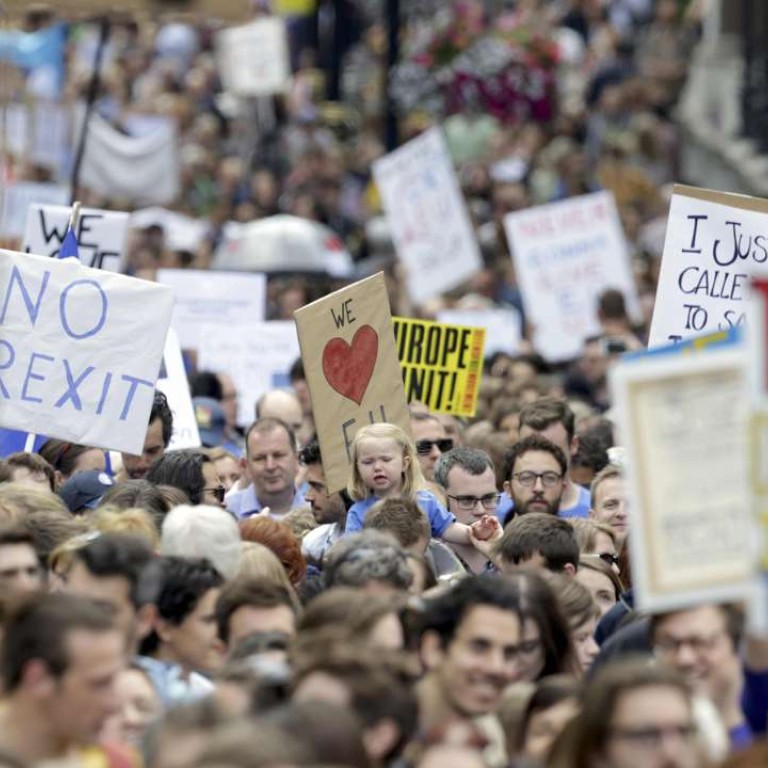
Eurexit is the real danger now
More EU member nations could be tempted to the follow the UK’s example
After Britain’s landmark decision to quit the European Union, global markets have been in celebratory mood. Call it what you will, short squeeze, bear market rally or just unalloyed joy that the world has not come to an end just yet, but markets are not out of the woods by any stretch of the imagination.
The million dollar question is whether the rally in equities, bonds and risk assets in general has any meaningful staying power, or whether it is doomed to peter out as reality sinks in on Brexit’s repercussions for Britain, Europe and the rest of the world. It is the fear of another pandemic of political, economic and financial risks that is the challenge facing investors now.
It is fair to say that global markets have every right to be pumped up, considering the glut of cheap and easy money currently washing around the world economy at the moment. In reality, markets are in denial. The global economy is in a weak and fragile state right now and the Brexit earthquake opens up fissures to a whole new set of future risks for investors.
Brexit may well mark the beginning of the end for the euro currency and be the trigger for renewed global turmoil ahead
Cheap money and investor irrational exuberance might have done their bit for the bull market in risk assets since 2009, but they seem to be doing precious little for the global real economy right now. World economic confidence remains on the ropes, with the latest purchasing manager surveys showing overall sentiment flat and lacklustre and critically weaker than two years ago.
Europe looks particularly vulnerable. Tensions are still riding high after the global and euro zone crises over the last eight years. Only thanks to superhuman efforts by the European Central Bank, through QE and negative interest rates, has Europe managed to avoid a deeper disaster. But economic confidence is only hanging by a slender thread and still very susceptible to shocks.

Britain quitting Europe could be the game changer. European politics are a powder keg ready to explode and Brexit will have ignited a dangerous spark. There are a slew of EU countries in political trouble. Fears about globalisation, austerity, unemployment, economic stagnation, wealth inequality and worries over migration are surfacing in growing political discontent with traditional centrist parties in Europe.
Political polarisation is underway and creating deep divisions and uncertainties across the EU and euro zone. The anti-austerity protests in France and rising euro scepticism in Italy, Spain, Greece, Austria and Netherlands are all symptoms of these fractures, raising growing doubts about the sustainability of Europe’s economic and political status quo over the future.
With key elections coming up in Germany and France over the next year, it is no surprise the EU is coming down hard on the UK, setting a deterrent to stop other nations following suit. But containment seems a lost cause now as the referendum virus has already been unleashed. Calls for EU referenda in France, Italy, Holland, Denmark, the Czech Republic and Austria are just the start of it. European voters have had enough and Eurexit is a real danger now.
In the coming months, investors will need to scour European poll trends like a hawk for any obvious signs of cracks in the EU’s fabric. While the distressed euro zone states like Greece, Spain, Portugal and Italy will be obvious candidates for dissent, the markets must pay close heed to Germany as well. Germany is getting close to bursting point politically.
European markets have rallied on the expectation of more easing to come from the ECB but this is not guaranteed any longer. Germany is extremely unsettled about the ECB’s open-ended monetary super-stimulus and markets may be in for a shock at some stage. The German authorities are concerned about the distortions from negative interest rates and bond yields on the domestic economy. It is not just bad news for inflation risks ahead, but a disaster for German savers and pensioners.
With Britain out of the frame in the next few years, Germany’s role as Europe’s paymaster and lender of last resort will become even more pressing on the nation’s resources. It is a spectre that will not be lost on the government or German voters next year. If there is even half a hint of German euro scepticism on the rise, then the euro zone and single currency are in deep trouble.
Brexit may well mark the beginning of the end for the euro currency and be the trigger for renewed global turmoil ahead.
David Brown is chief executive of New View Economics

